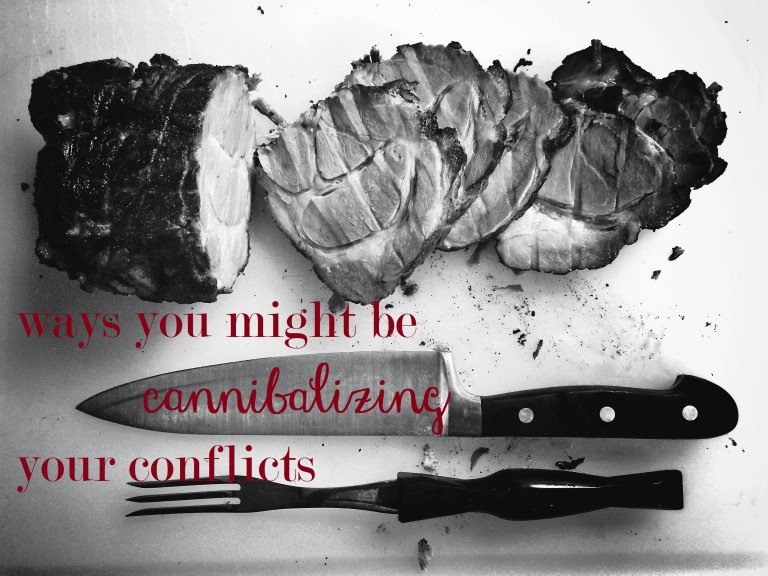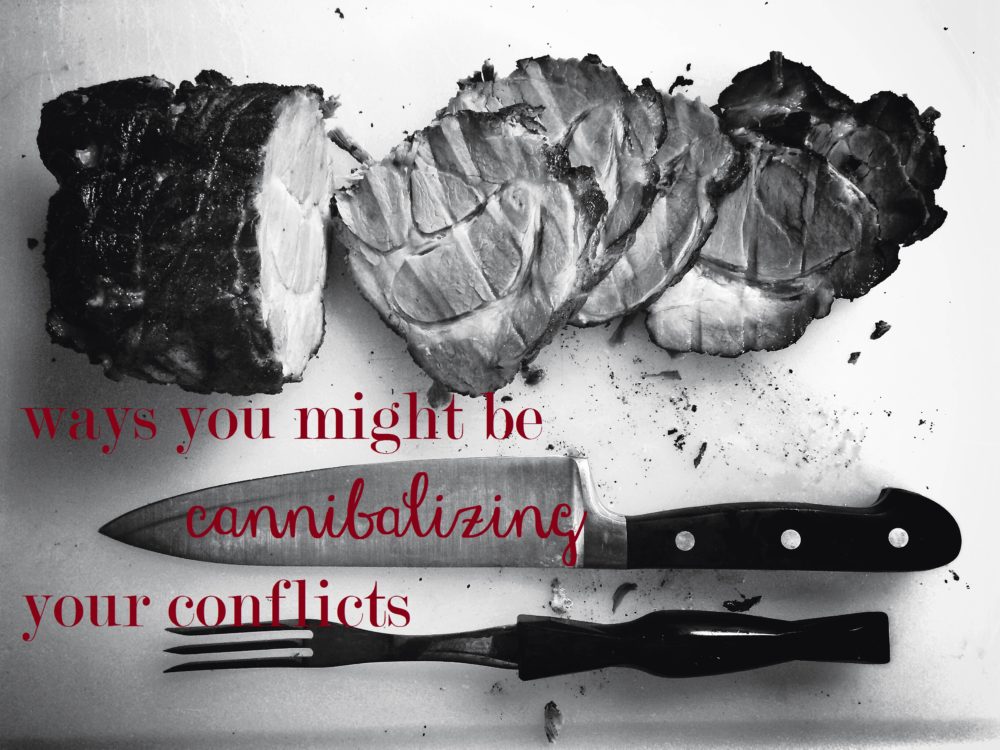Missed Part I? Get it here.
5. Venting—to people who aren’t part of the solution. Widening the circle of knowledge about a conflict to include people who aren’t going to lead you toward reconciling or problem-solving is often putting a label of “authenticity” on damaging another person’s reputation and their relationship with your friend, and furthering resentment, discord, and emotional distance (remember, our own words change us). In short, they’re not encouraging us toward unity and wise problem-solving, but isolation.
Be choosy about who you open up to about your conflicts, in order to protect your relationship and the person you’re in conflict with (returning a blessing for an insult)—just like you’d like them to be choosy in whom they talk with. (P.S. When you do wrap up a conflict with a friend, let the people you talked to know about how it turned out, so their frustration can be resolved, too.)
6. Letting “I want” become “I must have”. Take time to get down to the fears, values, and hurts that are driving your anger—which, remember, is a secondary emotion (the primary emotions often being fear, hurt, or embarrassment). Peacemakers keenly explains the birth of the “idols” in us: those desires that morph to become more important than people, replacing what only God is to satisfy in us. Desires morph into demands, which becomes judgment—and all idols deserve sacrifices. We put our relationships on the chopping block for what we crave.
This can only find true resolution by being satisfied by what our soul truly longs for: satisfaction in the one Person who won’t disappoint us, with whom we are finally satisfied . Getting honest about the core needs fueling our frustration can help us treat it, beginning at the source.
7. Mistaking honesty for love. Truth and love aren’t mutually exclusive. Telling someone “I’m just telling the truth” or “I’m just being honest” can often give us a lame excuse for not speaking the truth in love. Directness is fine. But make sure you check your kindness and gentleness, too. Are you creating an environment where a person feels the security and care to eventually want to change—or where they feel ambushed and defensive?
8. Not seeing the signs. Are you setting your conflict up for success in light of all the other stressors in that person’s life? Interrupting the football game or stomping in after work or erupting after weeks of bottled frustration—all the “hows” of your approach—may keep you from the “who” and the “whats” that are precious to you.
9.Going up the food chain. Involving people above that person in authority (bosses, pastors, etc.) before going to them first invites shame into your conflict. Though in some circumstances it’s appropriate (circumstances involving deceit, personal harm, etc.), true resolution and change is often helped by a person not feeling like they’re sacrificing their dignity.









1 Comment
» 9 ways you might be cannibalizing your personal conflict, Part II - 10 years ago
[…] 9 ways you might be cannibalizing your personal conflict, Part II […]